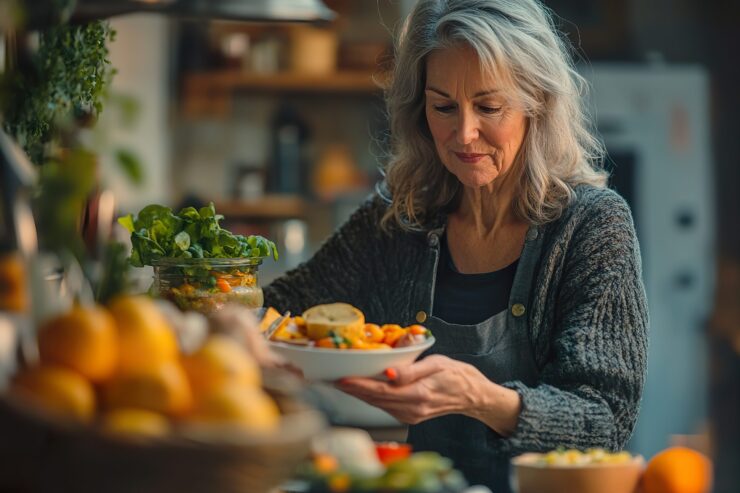Swap these words about food with more helpful terms.
Words matter, but we’re not just talking about the words we say among our friends or family. When it comes to our nutrition, the words we say to ourselves can influence our food thoughts, beliefs, and behaviors in many ways. Being mindful about the words we choose can lead to an overall more balanced and healthy lifestyle.
Studio 5 Health Contributor Miki Eberhardt shared three specific words to take out of our nutrition vocabulary today, and three words we can use instead.
Swap “Healthy” for “Nourishing”
The word “healthy” is often used to describe food. “The word healthy on its own is really quite loaded and limiting,” Miki said. “ Like, there’s no in between. It either is healthy or it’s not healthy.”
“ The reality is, it’s quite narrow and incomplete and there is so much more that goes into it,” Miki said. Instead, she suggested using the word “nourishing.” This shift in vocabulary allows for a more holistic view of food. For example, a food item might not be traditionally considered healthy, but it can still be nourishing in the context of a balanced diet.
Miki shared a personal story about training for a century bike ride and using a Pop-Tart for quick energy. While a Pop-Tart might not be labeled as healthy, it was nourishing for the task at hand.
“ Nutrition isn’t just numbers and ingredients,” Miki emphasized. “It’s so much more about the experience, about something being satisfying, and it feels connective in other ways than just… healthy, not healthy.”
Swap “Good” or “Bad” for “Helpful” or “Not Helpful”
Labeling food as “good” or “bad” can affect our relationship with food. Miki suggested using “helpful” or “not helpful” instead. “Good and bad are words that carry moral connotation to them,” she explained. “Unless you specifically, like, stole the food, or hurt the chef making the food… we don’t need to have this moral value that is tied to the food itself.”
Calling foods good or bad can influence our behavior around certain foods. “If I know cookies are bad, and I’m not supposed to eat them because I’ve labeled them as bad, instead of just having two and enjoying them, I may have three more because tomorrow I’m not going to eat bad food,” Miki explained.
On the other side, we may not choose something that is good and healthy because we think it won’t taste good. “ Restaurants have great research on this when they have the little section that’s like, healthy fare, skinny menu… People choose those foods more when they’re interspersed with the menu than when they’re just by themselves,” Miki explained.
Swap “Should” for “Could”
The word “should” often implies obligation and can create resistance. “Should is a code word for something that you probably think you should be doing, but you’re not,” Miki said. She recommended using “could” instead. By asking ourselves what we could do, we open up possibilities and make healthier choices feel more achievable.
Instead of saying, “I should eat more vegetables,” ask, “What vegetables could I eat? How could I prepare them to make them more palatable?” Miki said. “That is a total different shift than ‘you should eat more vegetables.'”
Find more advice from Miki on Instagram, @nutritionbymiki.















Add comment